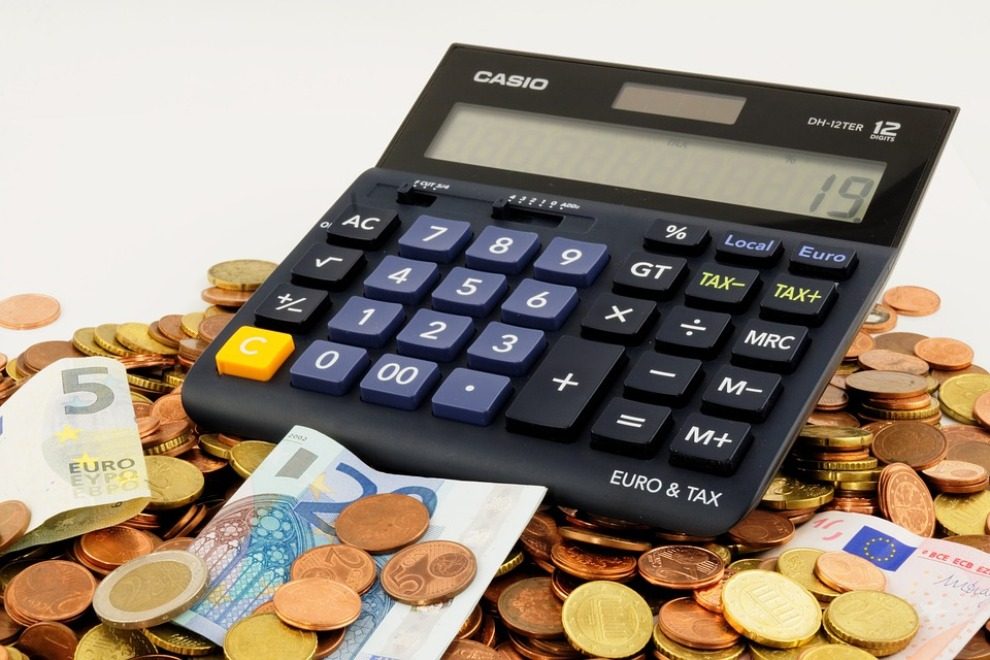Around one in three US households carry credit card debts from month to month, and almost half don’t have any kind of emergency savings they can fall back on when they need it. If you’re one of the millions of people who are regularly crumbling under their financial burdens, or you simply wish your personal finances were more stable and predictable, it can be a very frustrating and confusing position to be in. When you’re really on top of your money, you’ll be able to pay for the things that matter most more easily, and avoid any costly loans to cover necessary expenses. Here’s some easy steps towards greater financial stability…
Start With your Income and Expenses
The first thing you need to do when repairing your finances is to think about the amount of money you have coming in. Your monthly paycheque is a non-variable given, but you also need to consider any alternative and possibly variable income. Part time jobs, investment portfolios, child support, alimony, and anything else you have coming in should all be part of your notes. Write down your sources of income, do any rounding up or projections you need to, and try to arrive at a rough monthly figure. Next up, you need to do the same thing with all your expenses. This can often be one of the harder parts of establishing a solid budget. To make it easier, start with all your fixed expenses. Things like your rent, mortgage payments, insurance, utility bills, TV subscriptions, and any other expenses that aren’t going to fluctuate for the foreseeable future, should all come under this category. Then, move onto more variable costs such as food and gas. Don’t forget about all the things that end up in the “misc.” pile, such as car maintenance, property taxes, birthday and Christmas gifts, and so on. After you’ve added up all your rolling expenses, and subtracted this from your income, you’ll get a much clearer idea of where you can cut back.
Start Trimming the Fat
Once you’ve got a clear idea of your income and expenses, you’ve got the hard part out of the way. The next step is knowing where to cut back. Whether you’re just about keeping your head above water or wondering how debt consolidation works, cutting unnecessary expenses is always a good thing. If, for example, you’re getting double mocha lattes at a chain coffee shop every other day, and spending about $50 a month on this alone, make a point of doing this less often, or discovering the miracle of the Thermos! Perhaps the easiest way to determine where you can cut back is distinguishing genuine needs from wants and treats. Dividing your expenses like this can give you a totally new perspective on the way you’re managing your budget, and give you that little extra push you need to cut down on things that aren’t non-negotiable necessities. Try shopping around to find a cheaper contract with your service providers, such as your TV and phone contract providers. Sometimes, getting a better rate can be as simple as calling your current providers up and asking for a discount! You may also want to check out some personal budgeting apps, which can help you monitor how much you’re spending each month, and give you alerts if you’re ever spending more than you should. Paying your credit card bills more often, rather than just once per month, can help to prevent balances that climb too high.
Give Yourself a Cushion
Though the economy’s certainly seen worse times, there are still various fluctuating factors that can impact your financial stability. Giving yourself at least a small financial cushion is still extremely important. By setting up this kind of fund and paying into it regularly, you’ll create a safety net that can make all the difference when you’re surprised by an unexpected job loss, or another financial emergency. Experts say that you should aim to have six months’ salary in an emergency fund, in an account that you’ll be able to access at a moment’s notice. However, even if you only have $1,000 in the fund, this is a hundred times better than no emergency fund at all. No matter what you’re earning or what you’re having to pay, make sure you’re setting aside at least some money you can lean on in case of emergencies. Even if disaster strikes when your emergency fund is pretty negligible, your situation will be that much easier than it would be without that money.
Develop Discipline
Once you’ve established a budget, and have a solid financial plan in place, the only thing you need to focus on is sticking to it. Obviously, this is easier said than done. There’s a fair chance you only clicked on this article because financial discipline isn’t your strong suit! Regaining control over your finances takes dedication, but you just need to keep reminding yourself why you’re denying yourself so many luxuries, and that the reward will be well worth the effort. If you have a partner, and your finances are intimately linked, then start working together, and holding each other accountable for all the financial comings and goings of your household. Set rules that if one of you goes over budget with your spending, then the guilty party will have to invest that much more in the family savings. Being aware of these rules, not to mention a little healthy competition, can make sticking to your financial plan so much easier. If you’re single, try setting up a support network with your friends. Obviously, not everyone’s going to be thrilled about the idea of being your personal money police. However, you’re bound to have one friend who’s close enough for you to come clean to about your money difficulties, and how you’d like them to help you. In both of these situations, it always helps to have short-term rewards you can look forward to. From weekend breaks to big nights on the town, a carrot on a stick can be very effective!












Add Comment